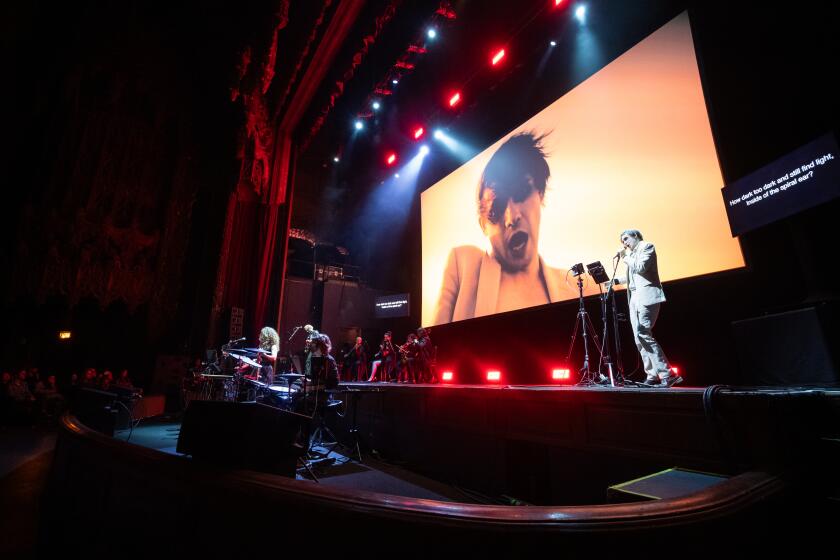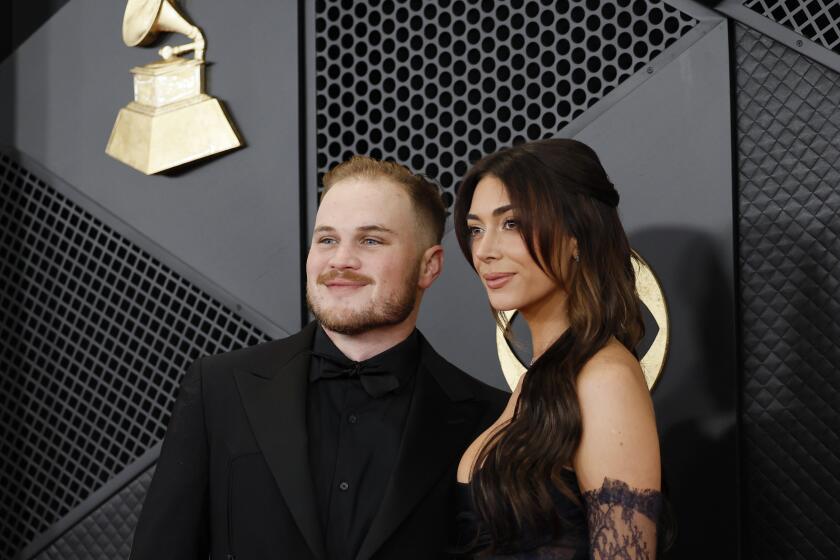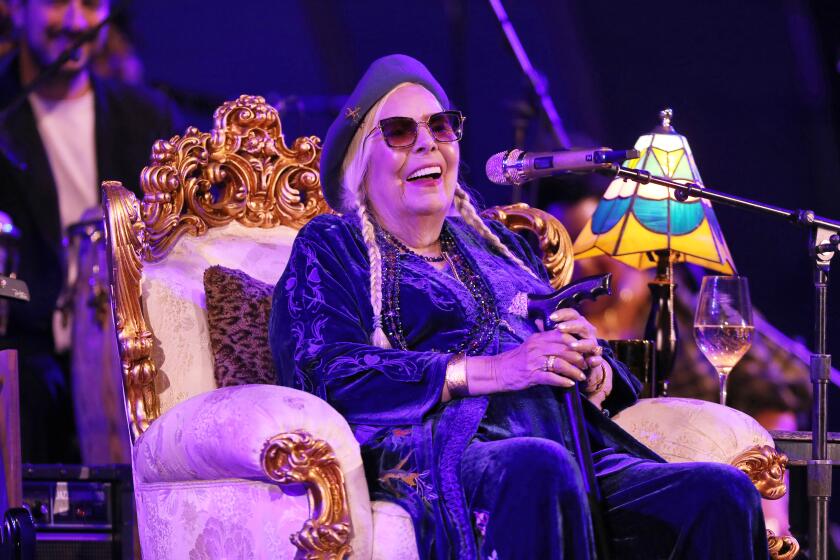ARE THEY JAZZ? ROCK? OR R&B;? : IT’S HARD TO LABEL THE DIRTY DOZEN
The Dirty Dozen Brass Band is a nightmare for people who like tidy musical pigeonholes.
The New Orleans octet, which appears Saturday at the Variety Arts Theater downtown, is usually lumped in with its hometown’s “new traditionalist” school spearheaded by Wynton and Branford Marsalis. But the group’s kinetic rhythms and high-energy extension of the traditional brass band sound have won it a surprising assortment of admirers in the rock world.
David Byrne credited the Dirty Dozen with inspiring his score to “The Knee Plays.” The group backed Blasters vocalist Phil Alvin on one song on his solo album and the band’s current West Coast tour ends with a three-night stand opening for the Grateful Dead in Oakland.
“Those people who are supposedly in the know don’t know how to classify the band,” declared trumpeter Gregory Davis by phone from New Orleans. “Is it a jazz band or a rhythm & blues band? We play a wide range of tunes and our music is danceable.
“Once someone has seen the show, they realize that it’s not all cerebral. We have no worry about an audience not knowing us. They’ll remember who we are once we finish.”
Davis, 30, had worked around New Orleans behind R&B; vocalists Jean Knight and Johnny Adams after studying at Loyola University. When a high school friend invited him to play with a brass band, Davis was immediately attracted by the greater freedom the style gave horn players.
He ultimately found his way to the Dirty Dozen, which had been formed by bass drummer Benny Jones and snare drummer Jenell Marshall in the mid-’70s. When months of rehearsal on brass band standards brought in few engagements, the group began adding favorite jazz and R&B; songs like “Night Train” and Charlie Parker’s “Bongo Beep” to its repertoire.
Its first performances at street parades met with scorn from traditionalists, but it was a different story with the general public. The group became so popular that it sparked a renaissance of interest in brass bands among younger musicians.
“When we started, there was no brass band for us to even play in,” Davis remembered. “The bands in existence were the older guys and they weren’t interested in playing the parades and conventions.
“We filled that void and we were working two or three gigs a day for about two years straight. Other groups saw where they could get work by taking the work we couldn’t take. Now, there are about 10 working brass bands in the city.”
The group’s first album, “My Feet Can’t Fail Me Now,” was released on the Concord Jazz label in 1984. The live “Mardi Gras at Montreux” album was released last year by Rounder and the band plans to start recording its third album, which Davis said will feature guest artists, next month.
The original material emphasizes tight ensemble work with staccato melodies playing off Kirk Joseph’s remarkably agile tuba bass lines and the powerful riffing of saxophonists Kevin Harris and Roger Lewis. The “Montreux” album provides a good portrait of the Dirty Dozen’s range--the band segues Thelonious Monk’s “Blue Monk” into T-Bone Walker’s blues classic “Stormy Monday” and another medley humorously plays off the musical similarities between two vastly dissimilar songs.
“We were forming at the beginning of a parade on Mardi Gras morning about two years ago and Kirk was just doing a regular oom-pah-pah on the tuba,” remembered Davis. “The thought came to my head, ‘Well, “The Star Spangled Banner” might fit right there.’
“I tried it, and Kevin and Roger, right after one verse, fell in with ‘The Flintstones’ theme. It happened in less than 10 minutes and we played it about 10 times there on the parade route.”
The Dirty Dozen haven’t taken any flak from ultra-patriotic sorts over the song so far but they have been affected by political developments during their extensive touring overseas.
“We did a USIA tour of countries like Yugoslavia, Greece and Turkey and we had to watch our step because it was right after the Libyan bombing,” Davis said. “There were places we couldn’t go and things we couldn’t play just because of that.
“It’s sort of ridiculous. Music is supposed to be free and open to the public but you can’t make certain statements because of what your government might be involved in.”
More to Read
The biggest entertainment stories
Get our big stories about Hollywood, film, television, music, arts, culture and more right in your inbox as soon as they publish.
You may occasionally receive promotional content from the Los Angeles Times.










